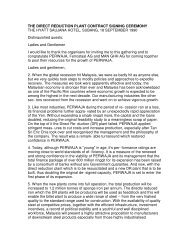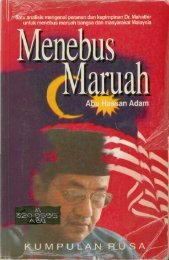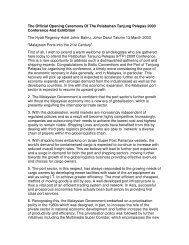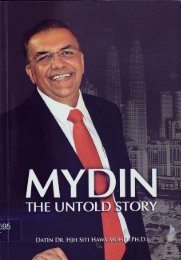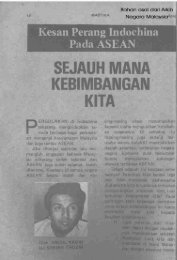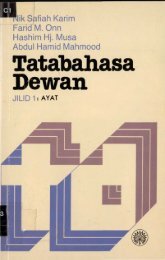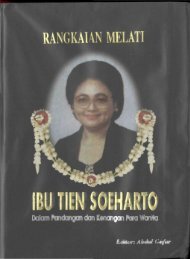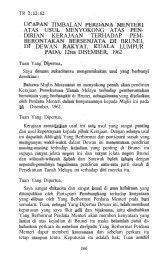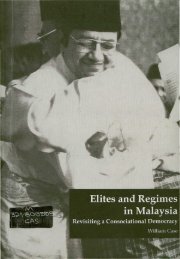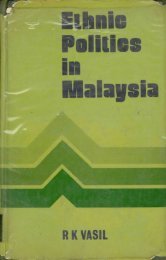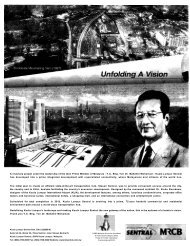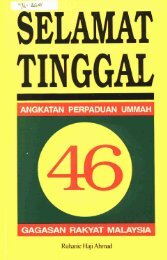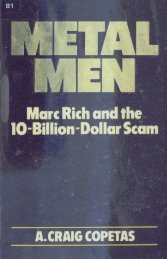TRIBUTE ABDUL - Perdana Library
TRIBUTE ABDUL - Perdana Library
TRIBUTE ABDUL - Perdana Library
You also want an ePaper? Increase the reach of your titles
YUMPU automatically turns print PDFs into web optimized ePapers that Google loves.
<strong>TRIBUTE</strong> TO TUNKU <strong>ABDUL</strong> RAHMAN<br />
It is interesting to note that the South Africans quickly changed<br />
their diplomatic tactics. Previously South Africa declined to attend<br />
any discussion on apartheid and ignored any attacks. After<br />
Sharpeville, she began to answer back, attended the Security Council<br />
meeting, and also announced that she would be represented at the<br />
Prime Ministers' Conference in London by her Minister of External<br />
Affairs, Mr. Louw. This settled one question because many had<br />
begun to doubt if South Africa would appear at all in face of the<br />
tide of hostile criticism.<br />
South Africa, however, had a particular reason for wanting<br />
to be there. The Government had announced its intention of<br />
holding a referendum on South Africa becoming a Republic. The<br />
most extreme elements wanted a complete break with the Commonwealth,<br />
but the Government was more guarded and left itself<br />
uncommitted on whether the proposed Republic should be inside<br />
or outside. One of Mr, Louw's assignments, it turned out, was<br />
to try and get a blank cheque endorsement for a South African<br />
Republic to stay in the Commonwealth.<br />
Apartheid produced one unexpected reaction - a great deal<br />
of heart-searching on the future of the Commonwealth, particularly<br />
in the Press. The most pessimistic had grave doubts whether the<br />
Commonwealth could survive the shock of Sharpeville; surely it<br />
could split wide open. The most optimistic were confident that the<br />
Commonwealth, with its remarkable record of adapting itself to<br />
changing circumstances, would not fail to meet this new challenge<br />
to its genius for association.<br />
The British Press managed to work itself into a tangle of speculation<br />
whether apartheid would come up in the Conference formally<br />
or informally, or whether it would come up at all. The words<br />
"formal" and "informal" began to assume estraordinary importance.<br />
The argument went like this. If apartheid is formally<br />
discussed it is a victory for public opinion; if it is informally<br />
discussed, then the Prime Ministers are handling it with kid gloves;<br />
if it is not discussed, then they are baulking the issue,<br />
50



